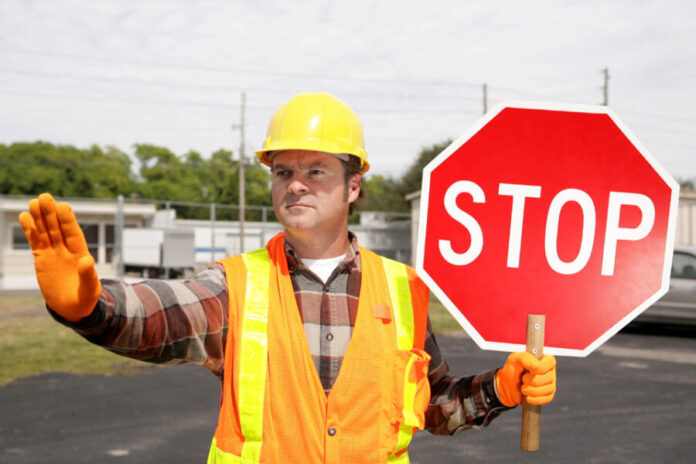Traffic control is critical to road safety, ensuring the smooth flow of vehicles, pedestrians, and construction workers in work zones. With the ever-growing demand for construction and infrastructure development, the need for trained and certified traffic control professionals is at an all-time high. In this blog, we explore the top reasons why individuals should consider taking a traffic control course. From the importance of traffic control for public safety to the role of traffic control professionals in construction sites and the benefits of a career in traffic control, this blog aims to provide readers with valuable insights into the industry. Whether you’re just starting out or looking to advance your career, this blog is a must-read for anyone interested in pursuing a career in traffic control.
The importance of traffic control for public safety
Traffic control is a critical aspect of ensuring the safety of workers and the general public in construction and other work zones. It involves the proper management of vehicles, equipment, and pedestrians to minimize the risk of accidents and injuries. With the increasing complexity of work zones and the rise in construction activities, the importance of traffic control training has never been greater.
Traffic control courses equip workers with the knowledge and skills necessary to manage and control traffic in a safe and effective manner. This includes understanding traffic laws, regulations, and guidelines and the proper use of traffic control devices such as signs, cones, and barriers. In addition, workers learn about the dangers of work zones, including the risk of vehicle collisions, pedestrian accidents, and equipment-related incidents.
By completing a traffic control course, workers gain the confidence and competence necessary to manage traffic safely and effectively. This helps prevent accidents and injuries and demonstrates a commitment to workplace safety, which is essential in maintaining a positive safety culture. Whether you are a construction worker, traffic control professional, or simply looking to enhance your safety knowledge, a traffic control course is an excellent investment in your career and personal safety.
The role of traffic control professionals in construction sites
The role of traffic control professionals in construction sites is vital for ensuring the safety of workers, drivers, and the public. These professionals are trained to direct traffic around construction sites and to maintain safe conditions for everyone involved. Their job is to make sure that drivers are aware of the construction zone and that workers and pedestrians are protected from the hazards of the road. They use cones, barriers, signs, and other equipment to create a barrier between the construction area and the flow of traffic.
One of the main responsibilities of traffic control professionals is to ensure that drivers slow down and are aware of the construction site. They use signs and cones to create a visual barrier that alerts drivers to the work area. This helps to reduce the risk of accidents and ensures that drivers are aware of the potential hazards on the road. Additionally, traffic control professionals may also use electronic devices such as radar guns to monitor the speed of vehicles in the construction area.
Another important aspect of their job is to keep workers and pedestrians safe. They are trained to maintain safe conditions around the construction site and to direct foot traffic around the work area. This helps prevent accidents and injuries and ensures that workers can do their jobs without being hit by a vehicle.
The benefits of a career in traffic control
- Versatile Career Opportunities: A career in traffic control offers a range of job opportunities, from working on construction sites to managing traffic at events. This versatility provides opportunities for individuals to expand their skills and experience and move up the career ladder.
- Rewarding Work Environment: Traffic control professionals play a critical role in ensuring the safety of road users and workers on construction sites. Contributing to a safer community can be highly rewarding and fulfilling.
- Hands-On Experience: Traffic control professionals are in a physically demanding but hands-on role. They get to work with a variety of equipment, including stop-slow bats, traffic cones, and other safety devices, which provides opportunities for skill development and growth.
- Good Earning Potential: Traffic control professionals are in demand, and this demand can lead to competitive salaries and benefits. Many employers offer on-the-job training, which can lead to higher earnings and more opportunities for career advancement.
- A Growing Industry: With the ongoing development of infrastructure and the increasing need for safety on roads and construction sites, the traffic control industry is expected to continue to grow in the coming years. This provides a stable and secure career path for individuals who choose to enter this field.
- Flexibility: Traffic control professionals often have the flexibility to choose their own hours, which can be a great option for individuals who want to balance work and other commitments.
Conclusion
In conclusion, becoming a traffic control professional can provide many benefits and opportunities. With the growing demand for traffic management in various industries, enrolling in a traffic control course can help you gain essential skills and knowledge, leading to a fulfilling and lucrative career. So get ahead of the game and consider taking a traffic control course today.
Read Also: 5 Crucial Workplaces Where Forklifts Are Basically Used



































































